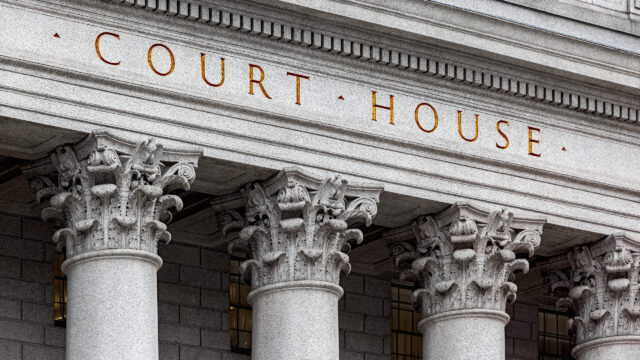Access to Information
Background
Rights to access information ensure the free flow of civic information and enable other civil liberties and rights.
Documents
Information access rights are found in the constitution, statutes, and the common law. These rights serve two purposes: (1) to require the government to make certain information available to the people; and (2) to prevent the government from blocking access to certain information or places of information exchange.
Obligation to Make Information Publicly Available
The government’s primary obligation is to ensure access to the law, which includes statutes, regulations, judicial opinions, and any other official statements that carry the force of law.
Rights of access also extend beyond the law. The Due Process Clause of the Fourteenth Amendment requires that inmates have “adequate, effective, and meaningful access” to legal research materials so that they may defend themselves in court. The First Amendment, as well as common law rights, also ensure the general public’s access to judicial records and proceedings, although this access does not have to be free.
Access rights have periodically come into conflict with copyright. The Supreme Court has consistently favored access rights when the government or a private individual has tried to copyright certain works, such as official annotations to judicial opinions and statutes.
Prohibition on Blocking Access to Information
The First Amendment prevents the government from blocking access to certain information. This prohibition takes two forms: (1) the government cannot censor information or otherwise prevent people from accessing information, except in very rare circumstances, such as profanity; and (2) the government cannot prevent access to places where information is exchanged, except in very limited circumstances.
The Supreme Court’s last major First Amendment access case involved the right to access websites. In Packingham v. United States, the Court struck down a North Carolina law that prevented registered sex offenders from accessing essentially every important news and communications website on the internet. In doing so, the Court recognized the importance of access to the internet, and social media in particular, to civic engagement.
Recent Documents on Access to Information
-
Amicus Briefs
Seymour v. Colorado
Colorado Supreme Court
Whether reverse keyword search warrants violate the Fourth Amendment to the U.S. Constitution and the Colorado state constitution.
-
Amicus Briefs
Trump v. Vance
US Supreme Court
Whether the NYC DA's grand jury subpoena for Trump's financial records, including his tax records, violates Article II and the Supremacy Clause of the United States Constitution
-
Amicus Briefs
Georgia v. Public.Resource.Org
US Supreme Court
Whether Georgia can copyright the state's official annotated code, which is the sole authoritative source of state law.
-
Testimony
Twitter: Transparency and Accountability
-
Amicus Briefs
Packingham v. North Carolina
US Supreme Court
Whether a State Can Ban Registered Sex Offenders From Accessing Internet News Sites
Top Updates
Resources
-
Statement from Brewster Kahle to H. Comm. on the Judiciary, Internet Archive
Internet Archive | 2017
-
Reconceptualizing Copyright’s Merger Doctrine
Pamela Samuelson | 2016
-
Open Access, Law, Knowledge, Copyrights, Dominance and Subordination
Ann M. Bartow | 2006
-
From Gutenberg to the Global Information Infrastructure
Christine L. Borgman | 2000

Support Our Work
EPIC's work is funded by the support of individuals like you, who help us to continue to protect privacy, open government, and democratic values in the information age.
Donate